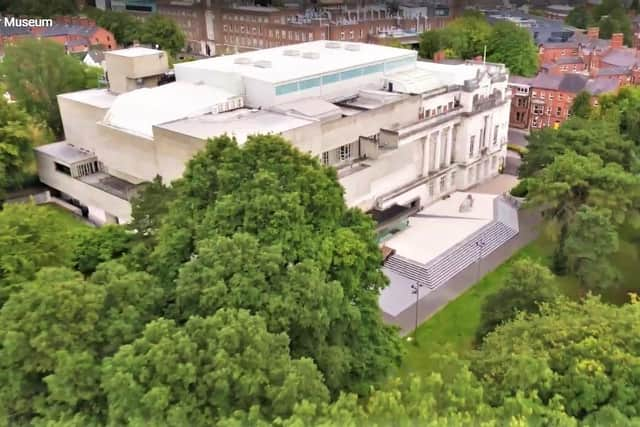Body running Northern Ireland’s museums withdraws objects from view ‘to support decolonisation’


The news emerged when the News Letter began asking questions about a press release issued on Thursday by a PR firm on behalf of National Museums NI (NMNI).
The release was about a new exhibition at the Ulster Museum in Belfast called “Inclusive Global Histories”.
Advertisement
Hide AdAdvertisement
Hide AdAccording to the press release, this exhibition arose from “NMNI’s commitment to decolonisation, diversity and inclusion”.
The items in the exhibition are drawn from NMNI’s “World Cultures Collection”, containing some 4,500 items.
This includes material from the Arctic, Africa, the Americas, Asia, and Oceania, and most of it was acquired in the 19th and early 20th centuries by Belfast’s Natural History and Philosophical Society.
Whilst some of the items had been on display before, NMNI stressed that it was a new exhibition in the sense that “it is the first time these collections have been brought together and interpreted in this way”.
Advertisement
Hide AdAdvertisement
Hide AdIt has “been created through collaboration with various communities both on a local and international level”, and NMNI stressed its commitment to consulting “marginalised communities”.
The News Letter asked whether exhibits are being withdrawn as part of the “decolonisation” process.
The response came:
“NMNI remains open and is in collaboration and consultation with many source communities.
“Feedback from these communities has led to us removing certain sacred objects from public display, including our website.
Advertisement
Hide AdAdvertisement
Hide Ad“We’re proactive in establishing and maintaining these relationships.
“Decolonisation is not just about repatriation and in fact about representation too and how items are interpreted.”
Pressed further about which items had been removed, NMNI said: “In the last few months concerns from the Polynesian community about the potential inclusion of a tapa cloth figure from the Easter Islands in the Inclusive Global Histories exhibition was shared with us.
“The figure is considered to be an Atua, a god and spirit of the Polynesian people.
Advertisement
Hide AdAdvertisement
Hide Ad“We immediately withdrew it from the exhibition and also removed any images of it from online sources.
“We have reached out to Easter Island Elders through a cultural liaison and are taking advice in response to continuing dialogue.”
NMNI added: “The museum is both a safe and a shared space, where everyone can visit, take part in debate and discussion, and not feel like we are presenting history / heritage etc in an offensive or biased way.
“We respect different perspectives and encourage people to learn from others in the hope of promoting mutual respect and understanding.”
Advertisement
Hide AdAdvertisement
Hide AdAcross the Anglophone world, the removal of historic objects from view – statues in particular – has become a divisive issue in recent years, drawing strong condemnation from conservative and classically-liberal quarters.
The Ulster Museum points to the following definitiion of “decolonisation”, as used by The Museums Association (which is a nationwide membership body for gallery / museum staff):
“Decolonisation is not simply the relocation of a statue or an object; it is a long-term process that seeks to recognise the integral role of empire in museums – from their creation to the present day.
“Decolonisation requires a reappraisal of our institutions and their history and an effort to address colonial structures and approaches to all areas of museum work.”
More from this reporter:
Advertisement
Hide AdAdvertisement
Hide Ad